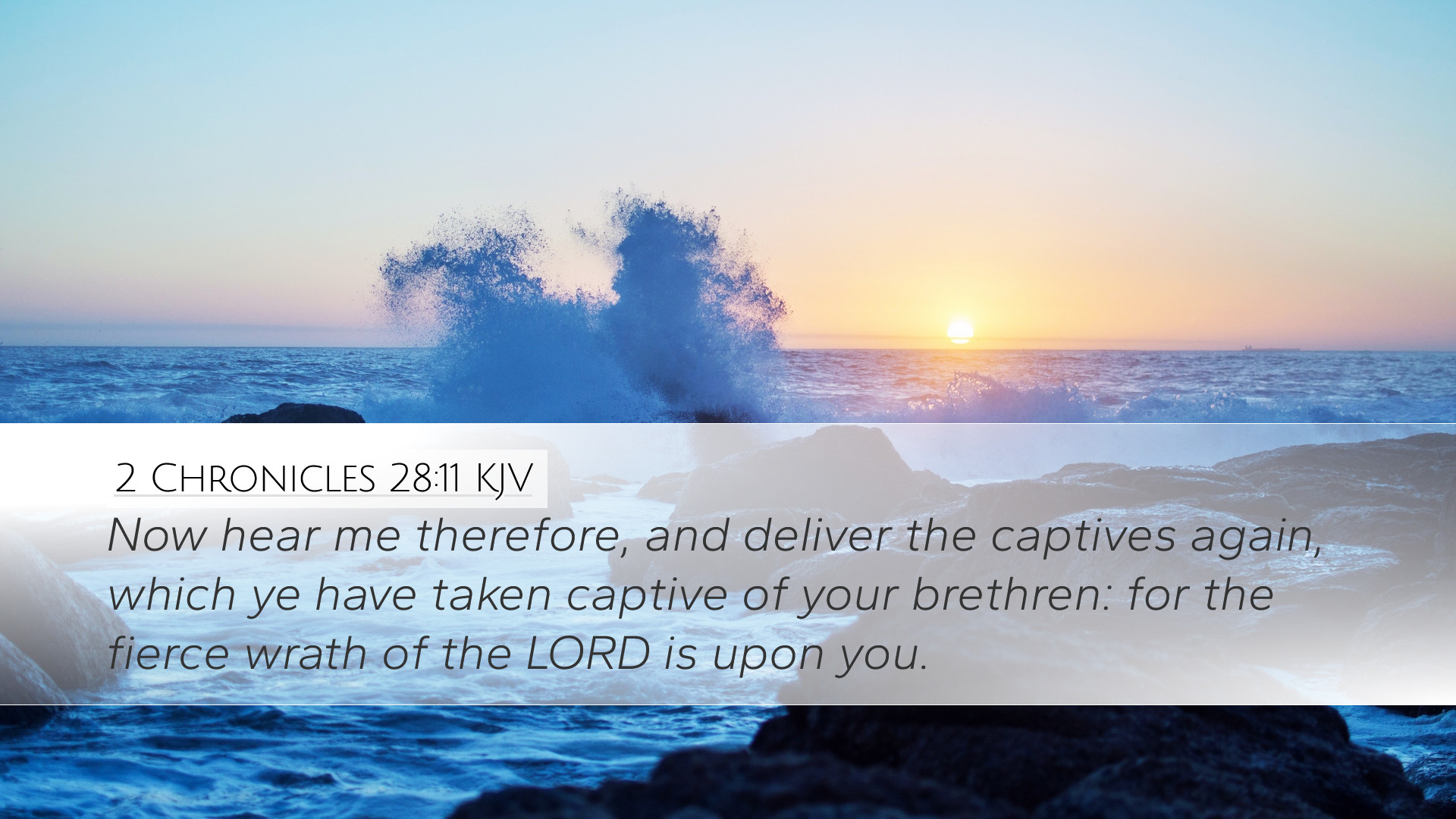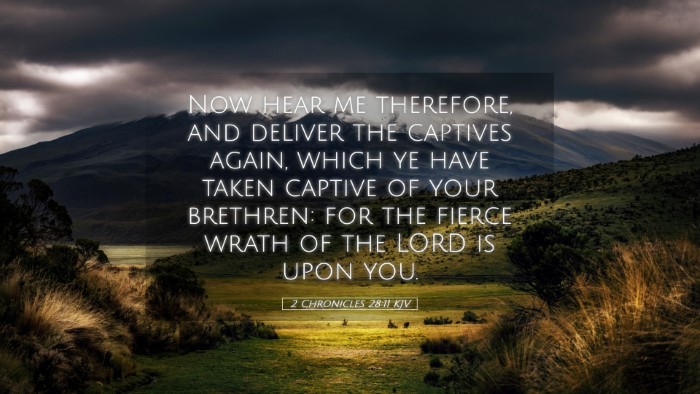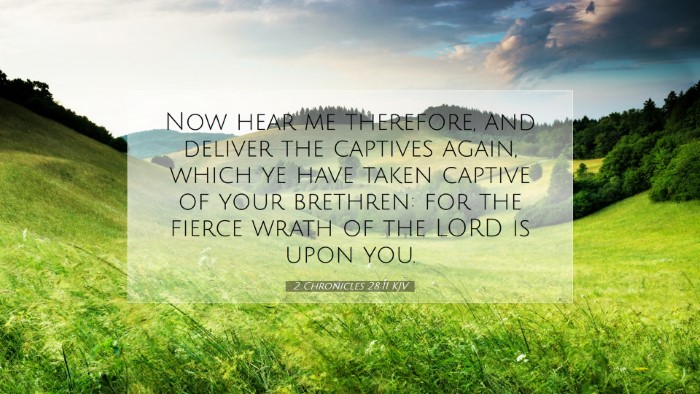Commentary on 2 Chronicles 28:11
2 Chronicles 28:11 states: "Now hear me therefore, and deliver the captives again, which ye have taken captive of your brethren: for the fierce wrath of the LORD is upon you." This verse appears within a context of conflict and appeal for restoration, where the prophet's voice seeks to redirect the actions of the people in the light of divine judgment.
Contextual Background
This chapter chronicles the reign of Ahaz, a king who demonstrated a lack of faith in God, leading to numerous calamities for Judah. The historical backdrop reveals a turbulent period where the southern kingdom was assaulted by Resurrected Israel. The heart of the narrative lies in the interplay of divine retribution and the call to repentance.
Exegesis of Key Themes
Divine Judgment
Matthew Henry articulates that the fierce wrath of the LORD is a crucial element in the understanding of this verse. The divine anger arises not merely from external actions but also from the internal disobedience that permeated Judah under Ahaz's rule. This evokes a stern warning regarding the consequences of straying from God's commands.
The Call to Restoration
Albert Barnes emphasizes the importance of listening to the prophetic voice, suggesting that the exhortation to deliver the captives reflects God's merciful nature. The verse illustrates a moment of grace in which the people are invited to turn their actions towards reconciliation with their brethren, thus mending the rifts caused by war.
Collective Focus on Community
Adam Clarke posits that the call to deliver captives pertains to a broader concept of community solidarity. The term 'brethren' indicates a familial relationship, underlining the importance of unity among the people of God, notwithstanding the violence inflicted by human actions. This signifies that ethical obligations extend within the covenant community.
Theological Implications
Human Agency and Divine Sovereignty
2 Chronicles 28:11 invites contemplation on the relationship between human choices and divine sovereignty. The passage highlights that while God's wrath can be fierce, His desire for repentance and restoration is fervent. This duality encourages believers to reflect on the implications of their actions within the scope of God's overarching plan.
Forgiveness and Restoration
Forgiveness emerges as a critical theme, as captured by both Henry and Barnes. The local leaders are admonished to engage with their obligations of restoration actively. This speaks to the Christian ethos that emphasizes reconciliation, not only with God but also within the community. It prompts a profound engagement with one another as believers are exhorted to restore relationships.
Practical Applications
The insights gleaned from 2 Chronicles 28:11 resonate with the pastoral call to address congregational strife. Pastors are encouraged to proclaim messages that highlight the necessity of forgiveness and restoration among members of the faith community. Students of the Scripture are impelled to explore the historical and social dimensions of such narratives to better understand their spiritual significance.
Encouragement for Prayer and Repentance
- Prayer as an Act of Repentance: Encourage individuals to seek divine intervention, reflecting on their own failings within the community.
- Restoration Efforts: Develop programs that facilitate reconciliation and healing among congregants who have grievances against one another.
- Teaching on Divine Wrath and Mercy: Educate the congregation on the balance between experiencing God’s judgment and His call to mercy.
Conclusion
In summary, 2 Chronicles 28:11 serves as a poignant reminder of God's desire for restoration in the face of disobedience and strife. Through insights gathered from the public domain commentaries, we uncover rich theological and practical implications for faith communities today. The call towards reconciliation echoes through time, urging the current generation of believers to heed the prophetic call to restore relationships and reconcile with one another, affirming the covenant community's identity as a reflection of God's redemptive plan.


